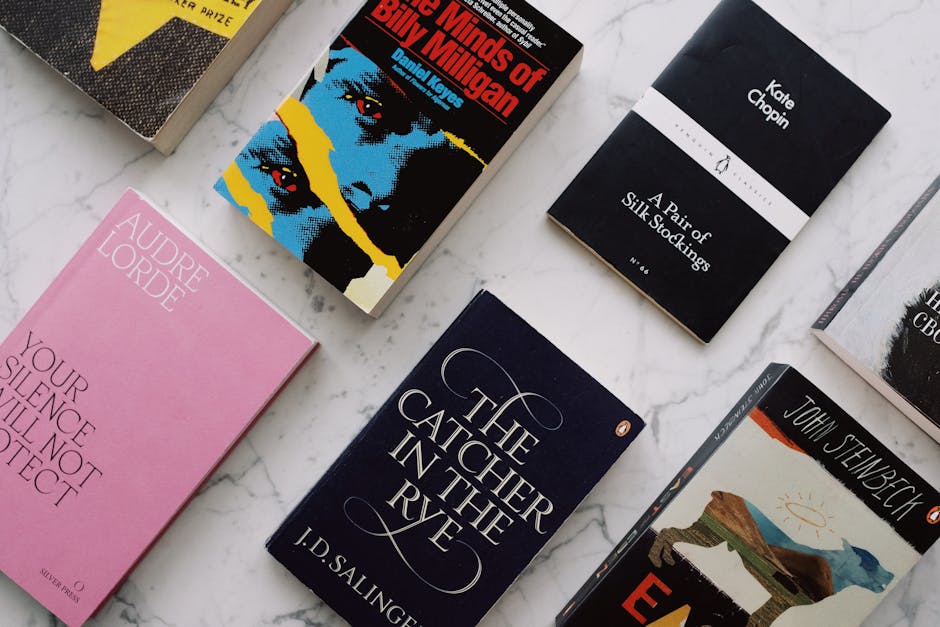The genesis of a story, that initial spark that ignites a narrative, remains a fascinating enigma, even for authors themselves. While some may attribute it to a divine muse, a more pragmatic examination reveals a complex interplay of factors contributing to this creative genesis. Authors tap into a diverse range of experiences, observations, and stimuli to fashion their fictional worlds. This exploration delves into the multifaceted sources that fuel the imaginative fires of literary creation.
Personal Experience forms a cornerstone of many narratives. Authors draw extensively from their own lives, albeit often filtered and transformed through the lens of fiction. Memorable events, relationships, and even fleeting moments of introspection can provide rich material for character development, plotlines, and thematic explorations. A childhood trauma might become the catalyst for a psychological thriller, a passionate romance could blossom into a sweeping epic, or a simple overheard conversation might inspire a nuanced exploration of social dynamics. This personal wellspring, however, isn’t merely a matter of recounting autobiographical details; it involves a creative distillation, transforming personal experiences into something universally relatable and artistically resonant.
Observation of the world around us is another vital ingredient in the author’s toolkit. Keen observation, a hallmark of skilled writers, allows them to absorb details from their environment and infuse their narratives with authenticity and vividness. A bustling marketplace, a quiet countryside scene, the subtle nuances of human interaction all become potential sources of inspiration. Authors often immerse themselves in different settings, cultures, and social contexts, actively seeking out experiences that challenge their perspectives and broaden their understanding of human nature. This immersive approach allows them to create characters and settings that resonate with a sense of realism, even within the realm of fantasy or science fiction.
Historical events and figures serve as powerful catalysts for literary inspiration. Many authors find themselves drawn to specific historical periods, using them as backdrops for narratives that explore the complexities of the past. A historical event, a forgotten figure, or a societal shift can offer rich fertile ground for crafting compelling stories that engage with broader historical themes. However, the use of historical context does not necessarily confine the author to historical accuracy. It often involves a selective interpretation of facts, blending historical elements with fictional narratives to create a unique and imaginative story.
Mythology, folklore, and legends from various cultures provide a treasure trove of inspiration. These ancient tales often contain archetypal characters, universal themes, and compelling narratives that resonate across cultures and generations. Authors may adapt these narratives, reinterpreting them within contemporary contexts or using them as springboards for original works. The enduring power of these myths and legends speaks to their inherent capacity to inspire and captivate readers, providing authors with a foundation upon which to build their own unique narratives.
The works of other authors constitute a significant source of inspiration, both consciously and unconsciously. Reading widely exposes authors to a vast array of styles, techniques, and narrative structures. This exposure can stimulate creativity, prompting them to experiment with different approaches and develop their own unique voice. However, it’s crucial to distinguish between inspiration and imitation. Great authors build upon the work of their predecessors, not by copying, but by reinterpreting and innovating, creating something new and original from the existing foundations.
Dreams, daydreams, and subconscious thoughts can unexpectedly unveil powerful narrative threads. The surreal landscapes of dreams, the fleeting images of daydreams, and the unspoken anxieties of the subconscious often hold untapped potential for creative expression. Many authors keep journals or engage in freewriting exercises to capture these fleeting moments of inspiration, mining them for hidden ideas and narratives. The process often involves deciphering symbolic language and transforming the raw material of the subconscious into coherent narratives.
Social and political issues also provide fertile ground for literary exploration. Authors often feel compelled to address pressing social and political concerns through their work, using their platform to raise awareness and encourage critical discussion. Stories can serve as powerful tools for social commentary, offering insights into complex issues and challenging prevailing norms. However, this engagement need not be overtly didactic; instead, it can be integrated subtly into the narrative, allowing the reader to engage with the themes on a deeper, more emotional level.
Finally, the simple act of curiosity can spark an author’s imagination. A peculiar object, an unanswered question, or an intriguing mystery can trigger a chain of thought, leading to the development of a compelling narrative. This approach emphasizes the importance of openness to unexpected discoveries, allowing the creative process to unfold organically. Authors who cultivate a sense of intellectual curiosity are often better equipped to tap into the rich wellspring of ideas that lie dormant within the everyday world.
In conclusion, the sources of literary inspiration are as diverse and varied as the authors themselves. It is not a singular muse but a confluence of personal experiences, observations, historical context, cultural narratives, literary influences, subconscious musings, social concerns, and sheer intellectual curiosity that fuels the creative process. The ability to synthesize these diverse elements and transform them into compelling and resonant narratives is the hallmark of a skilled and imaginative author. The search for inspiration is a lifelong journey, a constant exploration of the world and the self, ultimately shaping the unique and compelling narratives that enrich the literary landscape.
